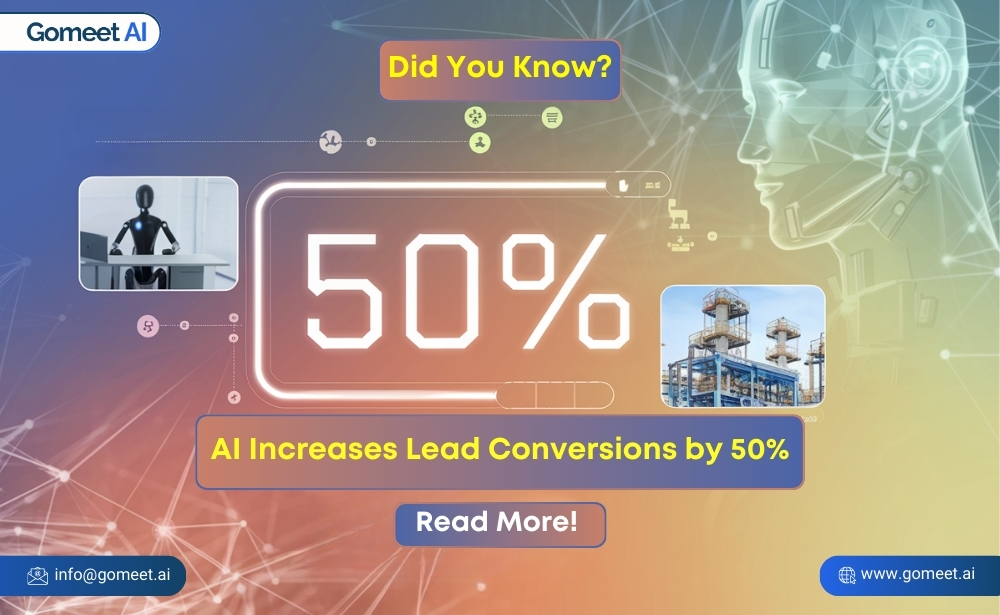In the competitive world of B2B manufacturing, sales teams face growing challenges. Traditional outreach methods, laden with manual processes, inefficiencies, and low lead conversion rates, often fail to deliver the desired results. Did you know that nearly 60% of B2B buyers are frustrated by generic sales pitches, while businesses using outdated methods miss out on 67% of potential leads? These numbers highlight a pressing need for innovation in sales strategies.
Enter sales assistant software—a game-changer for smarter outreach. By leveraging AI technology, B2B manufacturers can transform their prospecting processes, targeting high-potential leads with precision and efficiency. This blog explores how AI-powered sales assistant software revolutionizes outreach, from AI for sales prospecting to real-world applications, providing actionable steps to drive results.
Section 1: Understanding Sales Assistant Software for B2B Manufacturing
What is Sales Assistant Software?
Sales assistant software is a tool designed to streamline sales processes by automating tasks, providing AI-driven insights, and enhancing lead management. It eliminates repetitive manual work, empowering sales teams to focus on closing deals.
For B2B manufacturing, where buyer journeys are often long and intricate, this software becomes invaluable. It simplifies the process of identifying prospects, nurturing leads, and scheduling follow-ups, ultimately reducing the sales cycle. By acting as an intelligent partner for sales reps, the software helps optimize every stage of the sales funnel.
The Growing Need in Manufacturing
The B2B manufacturing sector presents unique challenges:
- Complex buyer journeys: With multiple stakeholders involved, it’s essential to deliver tailored messaging at every stage.
- Demand for personalization: Generic outreach no longer works. Decision-makers expect data-driven, highly relevant communication.
- High competition: With global players in the market, standing out requires a deep understanding of buyer behavior and needs.
Sales assistant software addresses these challenges by enabling personalized outreach, leveraging insights from AI, and automating key workflows.
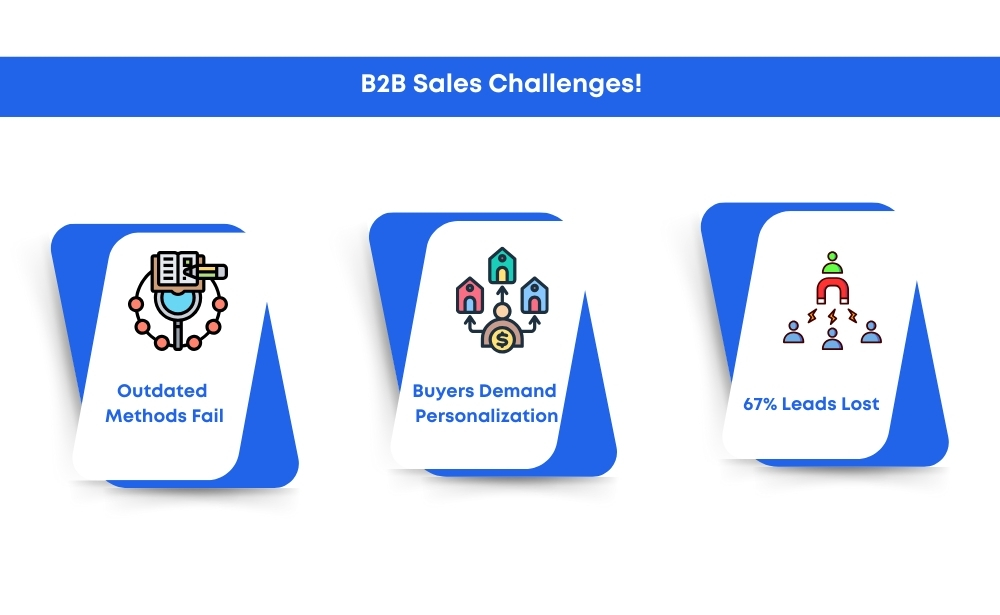
Key Features of Sales Assistant Software
- Lead Qualification: AI evaluates prospects based on historical data and behavioral patterns, prioritizing leads most likely to convert.
- AI-Driven Insights: Identify trends, forecast buyer behavior, and optimize outreach strategies.
- Workflow Automation: Streamline repetitive tasks, such as sending follow-up emails and updating CRM systems.
- Dynamic Reporting: Provides real-time dashboards to measure campaign performance and refine strategies.
Section 2: How AI Transforms B2B Sales Prospecting
AI for Sales Prospecting
AI is redefining the way sales teams approach prospecting. It analyzes vast datasets to uncover high-potential leads, saving time and resources. Through predictive analytics, it refines lead scoring by considering factors like company size, purchase history, and engagement levels.
A study shows that AI-driven prospecting increases lead conversion rates by 50% while reducing the time spent on research by 30%. Furthermore, AI tools can parse through unstructured data, such as email responses or website interactions, to identify hidden opportunities that human teams might overlook.
Benefits of AI B2B Sales
- Enhanced Accuracy: AI tools deliver precise targeting, ensuring outreach efforts are focused on prospects most likely to engage.
- Streamlined Processes: Automation accelerates workflows, allowing sales teams to handle more leads simultaneously.
- Reduction in Human Error: By automating data analysis and outreach tasks, AI minimizes mistakes that can jeopardize conversions.
- Real-Time Adjustments: AI can modify outreach strategies on the fly based on the success or failure of current tactics, ensuring optimal results.
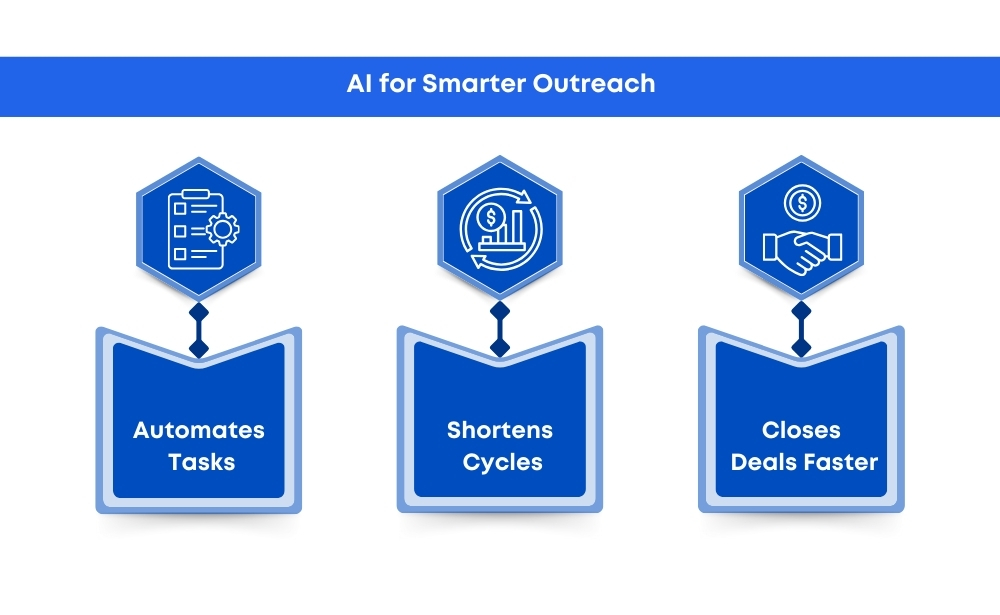
Section 3: Key Benefits of Sales Assistant Software in B2B Manufacturing
Improved Lead Qualification
Manual lead qualification is time-intensive and often flawed. AI-based segmentation filters prospects based on specific criteria, enabling sales teams to prioritize warm leads. For instance, a manufacturer using B2B sales prospecting software reported a 35% improvement in lead-to-deal conversion rates.
AI systems continuously learn and improve, meaning lead qualification becomes even more accurate over time. They identify patterns that might be too subtle for human analysis, ensuring no potential lead is left unexplored.
Smarter Outreach Strategies
- Automated Email Sequencing: AI schedules and sends personalized emails based on buyer behavior, ensuring timely follow-ups.
- Customized Messaging: AI insights enable tailored communication that resonates with individual prospects.
- Behavioral Triggers: AI detects when a prospect engages with content (e.g., clicking a link) and triggers the next step in the outreach process.
Increased Sales Efficiency
With routine tasks automated, sales teams can focus on building relationships and closing deals. Studies reveal that companies using AI-powered sales tools experience a 40% increase in productivity. Additionally, the time saved can be reinvested in strategic activities such as market research and competitive analysis.
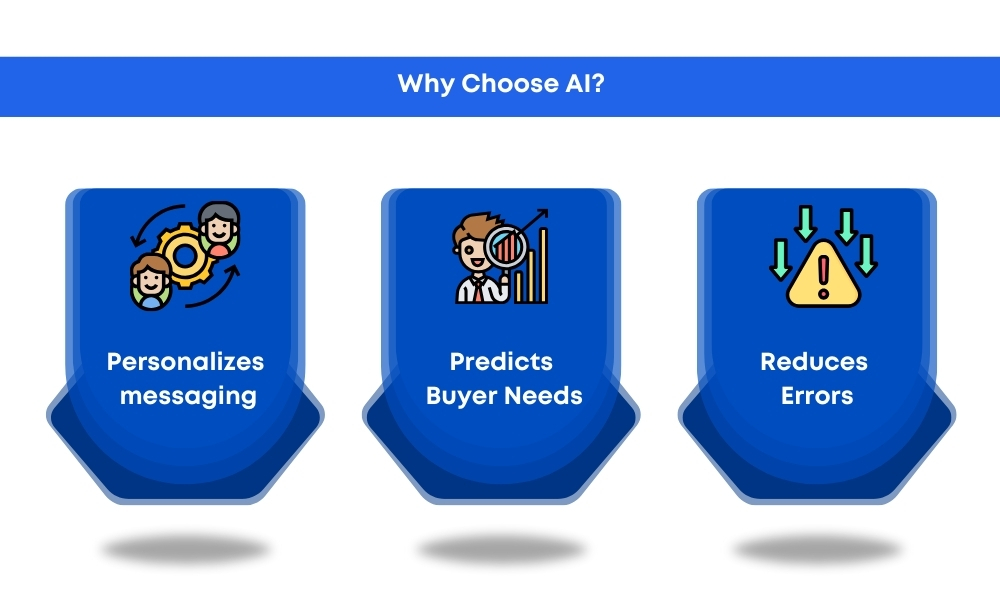
Section 4: Choosing the Right B2B Sales Prospecting Software
Essential Features to Look For
When selecting sales assistant software, prioritize:
- CRM Integration: Ensure seamless data flow between systems to avoid duplication and data silos.
- Data Security and Compliance: Choose software that adheres to industry standards like GDPR and ISO certifications.
- Scalability: Opt for tools that grow with your business needs, allowing you to handle more leads as your company expands.
- User-Friendly Interface: A tool that’s easy to adopt ensures minimal training time and maximum usability.
Top Software Examples
While many options exist, key players in the market provide robust AI capabilities, user-friendly interfaces, and advanced analytics without overcomplicating workflows. Look for unbiased reviews, case studies, and testimonials to identify the best fit for your organization. Platforms offering trial periods can also help evaluate compatibility before committing.
Section 5: Real-Life Applications of AI in B2B Manufacturing Sales
Case Studies
- Increased Lead Conversions: A manufacturing company implemented AI-powered sales assistant software and achieved a 50% increase in lead conversions within six months. The software’s predictive analytics allowed the team to target high-value prospects effectively.
- Shortened Sales Cycles: Another manufacturer reduced their average sales cycle by 30%, thanks to automated workflows and smarter prospecting techniques.
- Improved Customer Retention: By using AI-driven insights, a company was able to re-engage dormant clients and boost retention by 20%.
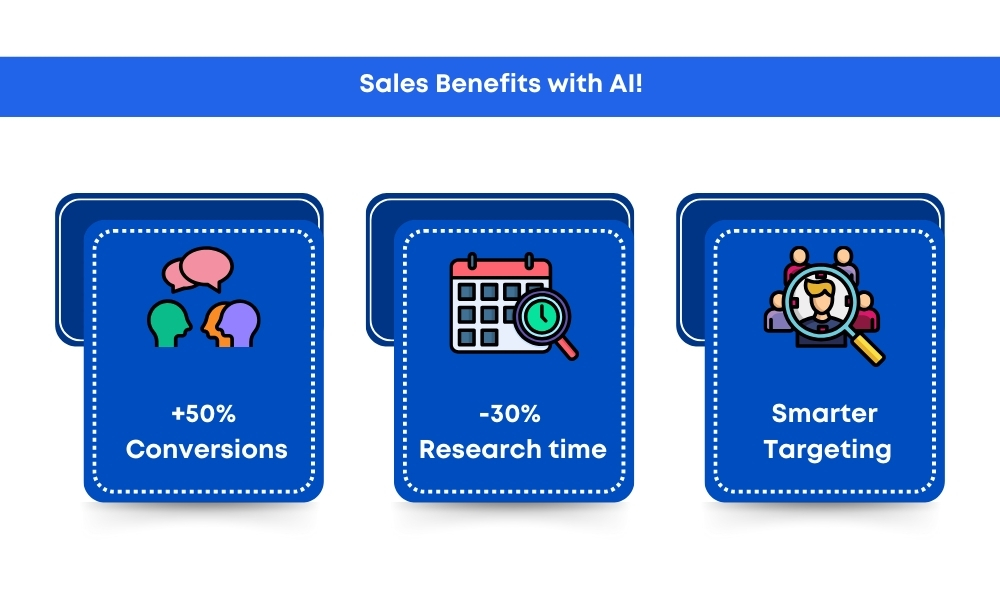
Lessons Learned
- Data-Driven Decision-Making: Leveraging AI insights ensures that sales strategies are backed by accurate, actionable data.
- Continuous Learning: AI systems evolve over time, providing increasingly valuable insights and optimizing processes.
- Enhanced Team Collaboration: With AI managing routine tasks, teams can focus on higher-value collaborations, improving overall outcomes.
Conclusion
Traditional sales strategies in B2B manufacturing are no longer enough to keep up with the demands of modern buyers. By adopting sales assistant software— Gomeet AI, powered by AI, manufacturers can revolutionize their outreach, improve lead qualification, and achieve unparalleled efficiency.
The results speak for themselves: faster sales cycles, higher conversion rates, and reduced manual workloads. AI-powered tools are no longer optional—they’re the key to staying competitive in today’s market.
Ready to transform your sales strategy? Explore how AI-powered tools can elevate your B2B manufacturing outreach. Take the next step today.

